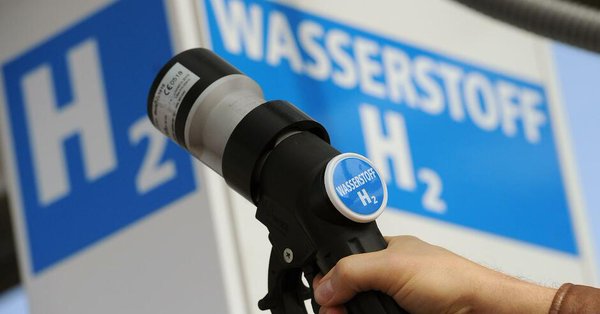
Drivers of electric cars with fuel cells benefit from more and more hydrogen filling stations as the hydrogen supply network becomes increasingly denser: H2 MOBILITY Deutschland and its shareholders OMV and Air Liquide have jointly opened a hydrogen (H2) filling station in Schnelldorf in the Ansbach district – the 16th in Bavaria.
Hydrogen is used to refuel electric vehicles with fuel cells. Their advantages: no noise, no pollutants, but the same utility, speed, and range as conventional vehicles. Hydrogen vehicles have ranges of 500 to 700 kilometres and, like cars with combustion engines, can be filled up in just three minutes.
The network of stations at which fuel-cell vehicles can refuel with hydrogen is becoming increasingly dense. There are now 70 H2 filling stations in Germany; by the turn of the year, the number will be 100.
The OMV filling station at Rudolf-Diesel-Strasse 1 in Schnelldorf, is conveniently located in the immediate vicinity of the Feuchtwangen/Crailsheim motorway junction, not far from the A6 and A7 motorways. The station thus represents an important link for journeys from Kassel or Hanover to southern Germany, and also forms a new H2 supply point between Baden-Württemberg and Bavaria. Nearby H2 filling stations are located in Nuremberg, Augsburg and Ingolstadt..
Hydrogen-powered e-mobility reduces CO2 emissions
Hydrogen offers a way to expand the range of fuels available to the transport sector in a climate-friendly way, because hydrogen can significantly reduce CO2 emissions.
Michael Sattler, Head of OMV Future Energy said, “Filling stations are central points of contact and supply for mobility change. They provide the necessary infrastructure and thus make an important contribution to the ecologically and economically sustainable mobility of the future. New technologies and innovation are very important to us – which is why we also concern ourselves with future energies such as hydrogen. We believe in the long-term success of this technology, especially in the field of heavy transport, and are committed to expanding the hydrogen infrastructure network.”
Markus Schewitza, Managing Director, Air Liquide Advanced Technologies GmbH said,“Hydrogen is one of the best solutions for achieving the goals of the Paris Climate Change Agreement. It has the potential to decarbonise the transport sector, one of the major sources of pollution in our cities. Air Liquide is proud to be involved in developing Europe’s largest hydrogen infrastructure so as to create the conditions for the roll-out of fuel-cell vehicles in Germany.”
Nikolas Iwan, Managing Director H2 MOBILITY Deutschland GmbH said,“Germany is on its way to becoming a trailblazer in hydrogen-powered electromobility. We are currently building the backbone of the hydrogen infrastructure with the first 100 stations in metropolitan areas, as well as along trunk roads and motorways. Our further expansion is demand-driven.”
The hydrogen station in Schnelldorf is funded by the European Commission through the Fuel Cells and Hydrogen 2 Joint Undertaking (FCH 2 JU) in the Hydrogen Mobility Europe (H2ME) project.